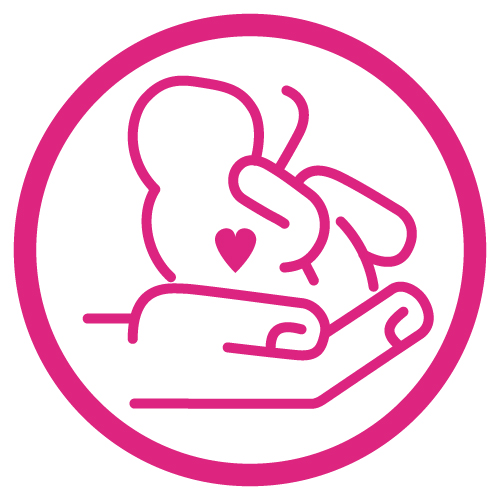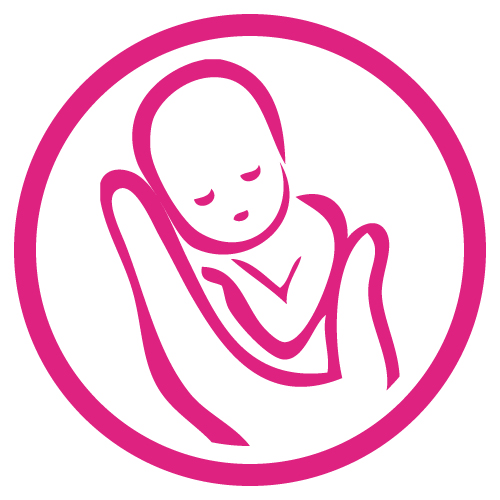 Pain Management in the NICU Online Course(s) & Continuing Education
Pain Management in the NICU Online Course(s) & Continuing Education
Access the latest clinical skills and research for Pain Management in the NICU for NEONATOLOGY professional training. These Pain Management in the NICU online courses provide practice-changing skills and valuable perspectives from leading global experts. This Pain Management in the NICU education has been accredited for a variety of CEUs / CERPs and can be accessed on-demand, at your own pace.

Advanced Postoperative Pain Management Strategies in the NICU

Teresa Puthoff, BS Pharm, PharmD, BCNSP received her professional degrees from the University of Cincinnati and The Ohio State University. She has over 30 years experience working in high risk delivery and referral centers. She currently works as an Advanced Practice Pharmacist in the NICU at Nationwide Children’s Hospital in Columbus Ohio. Her current professional passions are neonatal nutrition, developmental pharmacology, BPD, and analgesia and sedation management. She teaches PGY-1 and PGY-2 pharmacy residents as well as Neonatal Fellows in medicine, physical therapy and respiratory therapy. She has published on the use of regional analgesia in the NICU and is currently implementing the use of NCA and wound catheters for post op pain management as a part of ongoing efforts to reduce opioid and benzodiazepine use in the NICU.
There has been an evolution in knowledge regarding the consequences of untreated pain in the infant as well as the unintended long-term effects of providing systemic analgesics. Infants were often subjected to surgical procedures without analgesia until the landmark paper by Anand and Hickey demonstrated improved morbidity and mortality when proper anesthesia and analgesia were provided to infants undergoing surgical procedures. Early life stress and chronic pain has shown evidence of long-term adverse neurodevelopmental effects upto adulthood. An FDA Drug Safety Communication Alert advised practitioners that repeated or lengthy exposures to anesthetics and sedatives have the potential to have adverse effects on neurodevelopmental outcomes. Many anesthetics, benzodiazepines, and opiates act via NMDA (N-methyl-D-aspartate) receptor agonism, GABA (gamma amino butyric acid) agonism or both. Animal model studies have demonstrated neuro-apoptosis and subsequent cognitive impairments due to these drug-receptor interactions. Cumulative opioid exposure has been associated with adverse cognitive outcomes in former extremely low birth weight infants (ELBW). These concerns prompted many to pursue other pharmacologic modalities and surgical techniques to minimize the use of postoperative opioids. This lecture will discuss the use of Regional analgesia (RA) and Nurse Controlled Analgesia (NCA) in post operative infants in the NICU.

Advancing the Landscape of Neonatal Pain Management

Dr. Marsha Campbell-Yeo, a neonatal nurse practitioner and clinician scientist, is a Full Professor at the School of Nursing, Faculty of Health, Dalhousie University and holds cross appointments in the Department of Pediatrics, and Psychology and Neuroscience. Her Canada Foundation of Innovation funded research lab, MOM-LINC (Mechanisms, Outcome and Mobilization of Maternally-Led Interventions to Improve Newborn Care) is located at the IWK Health Centre. She primarily holds grants examining interventions to improve outcomes of medically at-risk newborns specifically related to pain, stress, and neurodevelopment as well as novel knowledge synthesis and dissemination methods, and digital e-heath interventions aimed at enhancing parental engagement.
She has been recognized for her contributions to the field via numerous awards. She has received an Honorary Doctorate from the Faculty of Medicine and Science from Orebro University, Sweden, and invited as a member of the Royal Society of Canada's College of New Scholars, Artists and Scientists, the recipient of the Inaugural Dalhousie University President's Award for research excellence, was named one of 150 Nurses championing innovation in health for Canada by the Canadian Nurses Association to mark the 150th anniversary of Confederation, a Canadian Institute of Health Research New Investigator Awardee, the Canadian Pain Society 2015 Early Career Awardee, and a Career Development Awardee of the Canadian Child Health Clinician Scientist Program. She is President-Elect of the Pain in Childhood Special Interest Group of the International Association for the Study of Pain, an Executive member of the Council of International Neonatal Nurses, and the Inaugural Chair of the Canadian Premature Babies Foundation Scientific Advisory Committee. Follow her on Twitter @DrMCampbellYeo
Topic: Why Are We Still Hurting Babies: Provider And Parent-led Interventions For The Treatment And Prevention Of Procedural Pain - [View Abstract]


Jim Thigpen has been a pediatric clinical pharmacist for 30 years and is currently an associate professor of pharmacy at East Tennessee State University Bill Gatton College of Pharmacy. When he began his training at MUSC in Charleston, SC, they were investigating Survanta and he has been witness to and a participant in the evolving world of neonatology since. He has spoken at several neonatal nursing conferences over the years and enjoys helping other practitioners learn about and apply pharmacotherapy in this special population.
Topic: Clinical Pain Management in the Neonate - [View Abstract]
Topic: Pharmacotherapy for Hemodynamic Instability in Neonates - [View Abstract]
Managing pain and discomfort in the neonatal patient is complex in many ways. Immature metabolic processes can lead to unpredictable effects that may lead to either negative effects and/or unsuccessful control of pain. As we have learned more about these metabolic pathways and how these medications are utilized, more evidence now exists that determine when one medication may be preferred over another depending on the clinical situation. Looking into the future of drug dosing, we may soon be able to determine a neonate's pharmacogenomic profile in order to provide true personalized medicine.
This presentation will help the learner understand the complexities of these challenges and provide them with the information and the tools to provide state-of-the-art medical care.


I am currently a Postdoctoral Scholar co-supervised by Dr. Melanie Noel (Psychologist and Assistant Professor in Psychology, University of Calgary) and Dr. Nivez Rasic (Anesthesiologist and Clinical Lead of the Vi Riddell Children’s Pain & Rehabilitation Program, Alberta Children’s Hospital) in the Department of Anesthesiology, Perioperative and Pain Medicine at the University of Calgary, Alberta Canada. In 2015, I completed a PhD in Neuroscience at the University of British Columbia under the supervision of Dr. Ruth Grunau (Psychologist and Professor in Pediatrics, University of British Columbia, Vancouver, British Columbia) and Dr. Steven Miller (Head of Neurology at the Hospital for Sick Children, and Professor in Pediatrics, University of Toronto, Toronto, Ontario). I have been studying pediatric pain in both healthy and clinical populations for over a decade. I have experience and expertise in both acute and chronic pain, and the transitions in-between, from infancy through to early adulthood.
As part of their lifesaving care, infants born very preterm (8 to 16 weeks too early) undergo repeated invasive procedures for what can be weeks to months on end. There is accumulating evidence demonstrating the negative long-term effects of repeated neonatal pain on the developing brain and neurodevelopmental outcomes of children born very preterm. The presentation will outline why infants born ≤32 weeks gestational age, are particularly vulnerable to repeated exposure to invasive procedures. I will highlight the latest literature exploring the long-term effects of neonatal pain on the brain and neurodevelopmental outcomes of both children born very preterm and animal models of prematurity. Furthermore, I will discuss evidence-based pain prevention and intervention strategies applied during neonatal intensive care. It is imperative that we continue to find ways to reduce the negative long-term effects of pain within this vulnerable population of infants born very-preterm.


Karel Allegaert received his MD and PhD at the KU Leuven, Belgium where he trained as a pediatrician-neonatologist, with an additional expertise in clinical pharmacology. He is professor at the KU Leuven (department of development and regeneration) and is clinical consultant at the pediatric intensive care unit of the Sophia's Children's Hospital, Rotterdam, the Netherlands. His research is focused on developmental perinatal pharmacology and neonatal and pediatric pain, has been supported by European funding (Albino study), and national grants (FWO, IWT-SBO) and has resulted in about 300 PubMed citations, H index 33. He is member of the Royal Academy of Medicine of Belgium, president of European Society of Developmental Pharmacology and section head clinical pharmacology of the European Society of Pediatric Research.
Inadequate pain management in neonatal life impairs neurodevelopment outcome because it alters pain thresholds, pain-or stress-related behaviour, and physiological responses later in life. However, there are recently also emerging animal experimental and human epidemiological data on the impact of analgo-sedatives on neuro-apoptosis and impaired neurodevelopmental outcome. As a consequence, the management of neonatal pain is in search of a new balance, and these conflicting observations are the main drivers to tailor our pain management in neonates. Adequate pain management is based on prevention, assessment, and treatment with subsequent reassessment. Issues related to prevention and assessment tools are covered. Non-pharmacological (e.g., complementary interventions like facilitated tuking, nonnutritive sucking) and pharmacological (e.g., acetaminophen, opiods, ketamine, propofol) treatment modalities were reviewed and reflect the increased knowledge on neonatal pain management. Each topic ends with some take-home messages that in part also reflects the speakers option on the current status of this topic

View Details / Enroll


Dr Denise Harrison is a Professor and the Chair in Nursing Care of Children, Youth and Families at the University of Ottawa and Children's Hospital of Eastern Ontario (CHEO), Canada. Her program of research titled Be Sweet to Babies focuses on pain management for neonates, infants and young children. She has co-produced a series of videos with parents and clinicians in multiple languages, showing effective pain management during painful procedures for newborns and infants up to one year of age. The videos are being used as knowledge translation interventions, and their effectiveness of implementation is being evaluated in diverse settings. Dr Harrison is an advocate for sick and healthy babies and their families, and argues that no non-urgent painful procedure should be performed without use of evidence-based pain management strategies.
There is abundant high-quality evidence demonstrating analgesic effects of breastfeeding, skin-skin care and sweet solutions (sucrose and glucose) for newborn infants during short lasting acute painful procedures. There is also growing and concerning evidence about long lasting adverse effects of painful procedures. Yet, studies continue to show that painful procedures are routinely performed on newborns with no pain management. This presentation will include an overview of the three recommended newborn procedural pain management strategies and the knowledge to action (KTA) gap concerning utilization of evidence in practice. Barriers and facilitators to using the three strategies in diverse clinical settings will be discussed and knowledge translation strategies being used to address KTA gaps in pain management in newborns will be presented.

Newborns are Children too! Ethical Challenges in Neonatology
 Franco Carnevale,
RN, PhD (Psych), PhD (Phil); Nurse, Psychologist, Clinical Ethicist(Children & Youth)
Franco Carnevale,
RN, PhD (Psych), PhD (Phil); Nurse, Psychologist, Clinical Ethicist(Children & Youth)

Franco A. Carnevale is a nurse, psychologist and clinical ethicist. He completed: an undergraduate nursing degree, three master's degrees (nursing, education, bioethics), and doctorate in counseling psychology at McGill University; a master’s degree in philosophy at Université de Sherbrooke and a second doctorate in moral philosophy at Université Laval. Dr. Carnevale is the founder and principal investigator for VOICE (Views On Interdisciplinary Childhood Ethics); a McGill University-based international initiative to advance knowledge and practices relating to ethical concerns in childhood. Current academic appointments include (McGill University): Full Professor, Ingram School of Nursing; Associate Member, Faculty of Medicine (Pediatrics); Adjunct Professor, Counselling Psychology; Affiliate Member, Biomedical Ethics Unit. Clinical appointments include: Associate Member, Pediatric Critical Care, Montreal Children's Hospital; Clinical Ethics Consultant, The Lighthouse, Children and Families (pediatric hospice and respite care); Clinical Ethicist, Child, Adolescent, and Family Services, Douglas Mental Health University Institute; Chair, Clinical Ethics Committee, Shriner's Hospitals for Children (Canada). Dr. Carnevale is a founding member of the Board of Directors of the World Federation of Pediatric Intensive and Critical Care Societies (WFPICCS) and founding member of the Editorial Board of Pediatric Critical Care Medicine.
 Franco Carnevale,
RN, PhD (Psych), PhD (Phil); Nurse, Psychologist, Clinical Ethicist(Children & Youth)
Franco Carnevale,
RN, PhD (Psych), PhD (Phil); Nurse, Psychologist, Clinical Ethicist(Children & Youth)
Advances in pediatric ethics have helped identify ethical concerns that arise in the care of children as well as strategies for addressing these concerns. Despite these important innovations, some significant ethical problems persist in neonatology, which seem rooted in particular challenges involved in the care of newborns and their families. These include concerns regarding: excessive care for infants with limited prognoses; dismissive care toward projected disability; providing palliative care; parental roles and responsibilities; inadequate pain management; cross-cultural disagreements; and moral distress among staff and parents. These tensions commonly relate to: (a) difficulties in defining infants’ best interests; (b) tensions regarding the respective decisional authority of parents and health professionals; and (c) tragic situations where all treatment options seem wrong. Strategies for analyzing and reconciling these ethical concerns will be discussed.

View Details / Enroll

Pain Assessment in Ventilated, Sedated, and Muscle-Relaxed Neonates

Bianca completed her undergraduate nursing and midwifery training at the University of Queensland. She has been neonatal nursing for the last six years, and in that time completed her Postgraduate Certificate in Nursing Practice (Neonatal Intensive Care) and her Masters of Advanced Nursing Practice (Minor Thesis) at the University of Melbourne.
In 2016, Bianca participated in a Nursing Research program entitled ‘Building Evidence with Support to Transform (BEST) Practice at the Royal Children’s Hospital (RCH) in Melbourne, Victoria Australia, which were the beginnings of her nursing research journey. She investigated nursing assessment of pain in neonates, and instigated a hospital-wide change in the pain assessment tool utilised in neonates. Since then she has evaluated the clinical utility and inter-rater reliability of the modified Pain Assessment Tool (mPAT) that is now used at the RCH. She is currently a Nursing Research Clinical Nurse Consultant at the RCH.
Neonates admitted to the Neonatal Intensive Care Unit (NICU) undergo numerous painful procedures each day, with fewer than one-third receiving analgesia. This is alarming as neonates who are critically ill and in pain are susceptible to developing life-threatening complications, since they cannot maintain homeostasis in a state of stress. Additionally, the cumulative effects of these painful experiences, has significant negative consequences to the neurodevelopment of these vulnerable neonates.
Pain assessment is fundamental to effective pain management although there is currently no universally accepted scale for pain assessment in neonates, and more evidence is required to determine the reliability and validity of existing pain assessment tools. Additionally, health clinicians do not know if the physiological and behavioural indicators of pain they observe are specific to pain, or a manifestation of the neonates medical condition, disease process, agitation, distress, fear, stress or even sadness. This issue is compounded when the expressive capacity of critically ill neonates is compromised by the administration of heavy sedation and muscle-relaxants. This presentation explores some of the complexities of pain assessment in neonates followed by practical advice for the health clinician, including a look at the modified Pain Assessment Tool (mPAT) and how it can help improve neonatal pain assessment in the clinical setting.


2. Rebeccah Slater is a Senior Wellcome Trust Research Fellow and Professor of Paediatric Neuroscience at the University of Oxford. She is also a Professorial Fellow st St John’s College, Oxford. Rebeccah studied Physics (BSc) at Imperial College and Neuroscience (MSc) at UCL, and in 2007 was awarded her PhD at UCL under the supervision of Prof Maria Fitzgerald. Since 2013 Rebeccah has led the Paediatric Neuroimaging Research Group, which focuses on understanding the mechanisms that underlie the development of pain perception in the human infant. She uses a range of non-invasive brain imaging tools, including EEG and fMRI, to explore the development of pain perception. She has published many articles about infant pain and has been passionately involved in science communication and the public engagement of science. She has taken part in discussions on TV and radio, including BBC Radio 4 and the BBC World Service. Rebeccah holds an honorary research position in the Neonatal Care Services at the John Radcliffe Children’s Hospital and is a PI at the Wellcome Centre for Integrative Neuroimaging (WIN).
Pain in infancy has negative long-term consequences and its prevention is a clinical priority, but adequate pain treatment requires mechanistic understanding of the structural and functional development of human pain-related brain circuitry. Recent scientific and technological advances provide insights into how noxious information is transmitted to the infant brain, providing a platform to ask how intrinsic brain network connectivity and the environment affect pain-related brain activity, behaviour and ultimately pain perception in the developing infant nervous system.
As infants cannot describe their pain, we are reliant on alternative methods to measure their pain experience. My goal is to understand the mechanisms that drive and modulate pain perception in early human development. In this talk, I will discuss a series of mechanistic studies in human infants that aim to better understand the development of human pain. I will address fundamental questions regarding the functional development of pain-related brain activity and behavior, and will discuss whether inherent individual differences in how the infant brain behaves at rest drives differences in pain vulnerability. Finally, I will describe how these mechanistic insights can be used to test new analgesic treatment options and improve the treatment of infant pain.

Why Are We Still Hurting Babies: Provider And Parent-led Interventions For The Treatment And Prevention Of Procedural Pain

Dr. Marsha Campbell-Yeo, a neonatal nurse practitioner and clinician scientist, is a Full Professor at the School of Nursing, Faculty of Health, Dalhousie University and holds cross appointments in the Department of Pediatrics, and Psychology and Neuroscience. Her Canada Foundation of Innovation funded research lab, MOM-LINC (Mechanisms, Outcome and Mobilization of Maternally-Led Interventions to Improve Newborn Care) is located at the IWK Health Centre. She primarily holds grants examining interventions to improve outcomes of medically at-risk newborns specifically related to pain, stress, and neurodevelopment as well as novel knowledge synthesis and dissemination methods, and digital e-heath interventions aimed at enhancing parental engagement.
She has been recognized for her contributions to the field via numerous awards. She has received an Honorary Doctorate from the Faculty of Medicine and Science from Orebro University, Sweden, and invited as a member of the Royal Society of Canada's College of New Scholars, Artists and Scientists, the recipient of the Inaugural Dalhousie University President's Award for research excellence, was named one of 150 Nurses championing innovation in health for Canada by the Canadian Nurses Association to mark the 150th anniversary of Confederation, a Canadian Institute of Health Research New Investigator Awardee, the Canadian Pain Society 2015 Early Career Awardee, and a Career Development Awardee of the Canadian Child Health Clinician Scientist Program. She is President-Elect of the Pain in Childhood Special Interest Group of the International Association for the Study of Pain, an Executive member of the Council of International Neonatal Nurses, and the Inaugural Chair of the Canadian Premature Babies Foundation Scientific Advisory Committee. Follow her on Twitter @DrMCampbellYeo
Topic: Why Are We Still Hurting Babies: Provider And Parent-led Interventions For The Treatment And Prevention Of Procedural Pain - [View Abstract]
After decades of healthcare providers not recognizing newborn infants’ capacity to feel pain and the associated adverse outcomes, we now know that current evidence suggests that repeated procedural pain contributes to long-term changes in stress regulation and brain development in vulnerable preterm infants, after accounting for associated clinical confounders. Many medications are often not effective for the most commonly performed painful procedures, and their repeated and frequent use may have potential short and long-term adverse effects. Recent research has thus focused on finding non-pharmacological interventions or sweet tasting solutions as a substitute to pharmacologic treatments, or as a means to reduce the drug-doses needed for optimal analgesia associated with procedural pain. Several of these interventions involve parents, e.g., skin-to-skin care, breastfeeding, or facilitated tucking. Despite this knowledge, clinicians often struggle with incorporating these strategies into everyday practice. Moreover, most parents and many providers remain unaware of the powerful benefits of integrating parents as active participants in newborn pain management. This presenatation will cover interventions to address the treatment and prevention of procedural pain.













